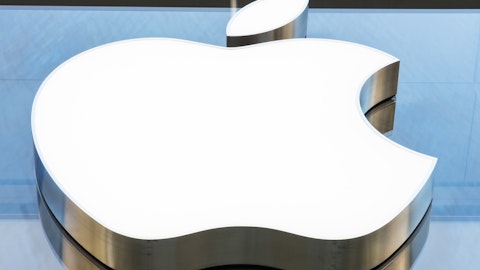9: The Coca-Cola Co (NYSE:KO)
Percent of Warren Buffett’s Portfolio: 14.4%
Dividend Yield: 3.1% Forward P/E Ratio: 23.3x (as of 5/16/16)
Sector: Consumer Staples Industry: Soft Drinks
Dividend Growth Streak: 54 years
The Coca-Cola Co (NYSE:KO) needs no introduction as the largest beverage company in the world. While investors most commonly associate the company with the Coca-Cola brand, the business actually owns more than 500 sparkling and still brands covering nearly 4,000 different beverages. Over 20 of its brands generate over $1 billion in sales each.
Coke is also a very global company. Only 20% of the company’s case volume was sold in North America in 2015. Latin America (29%) and Asia (22%) are major regions for Coca-Cola and are characterized by higher growth rates.
Coca-Cola might be Warren Buffett’s most famous stock investment. Buffett scooped up a major stake in Coca-Cola in 1988 after the 1987 stock market crash made the company’s valuation too enticing to pass up.
Coca-Cola’s strong brands and extensive distribution system around the world have enabled it to become the number one provider of sparkling and still beverages and increase its dividend for over 50 straight years, qualifying the company as a ember of the dividend kings list.
Consumers have been conditioned to enjoy the company’s many brands, in part driven by Coca-Cola’s substantial marketing and advertising investments each year.
With strong brands that are proven to sell, Coke’s products are very difficult to replace on shelves. Competitors will have a very hard time taking share from the company.
Buffett loves companies with economic moats, and The Coca-Cola Co (NYSE:KO)’s moat is very strong. As per capita income grows in emerging economies, where Coke has a major presence, demand should continue rising for its products.
Follow Coca Cola Co (NYSE:KO)
Follow Coca Cola Co (NYSE:KO)
Receive real-time insider trading and news alerts
10: General Electric Company (NYSE:GE)
Percent of Warren Buffett’s Portfolio: 0.3%
Dividend Yield: 3.1% Forward P/E Ratio: 19.7x (as of 5/16/16)
Sector: Industrials Industry: Diversified Operations
Dividend Growth Streak: 5 years
General Electric Company (NYSE:GE) is an industrial conglomerate that has been around for a long time. Only 12 companies made up the original Dow Jones Industrial Average in 1896, and GE is the only one still on the list.
General Electric’s industrial operations are diversified across a wide range of large products such as gas turbines, oilfield equipment, aircraft engines, locomotives, and medical imaging gear. Most of its revenue is derived overseas, and the majority of GE’s industrial profits are actually from aftermarket products and services (not the original equipment sale).
Income investors certainly haven’t forgotten the pain GE inflicted on many portfolios during the financial crisis.
The company’s lending operations pushed it to the brink of bankruptcy, forcing it to cut its dividend and raise billions of dollars by issuing stock.
Warren Buffett swooped in during late 2008 and agreed to acquire $3 billion in preferred stock that paid a 10% dividend. Berkshire Hathaway exited his warrants five years later in a share settlement, which resulted in the firm’s current stake in GE.
General Electric is another American icon in Buffett’s portfolio and contains a number of strong brands and leading market share positions.
While the stock is a small position for Buffett, there are several reasons why Berkshire Hathaway sees some potential in GE’s long-term future.
Most importantly, the company is in the middle of a major transformation that will see its industrial operations shift from 57% of earnings in 2014 to over 90% by the end of 2018.
This transition will substantially reduce GE’s sensitivity to its capital financing operations and allow it to focus resources on its most profitable, fastest-growing markets.
Buffett might also be fond of GE’s industrial operations because of their mission-critical products and strong aftermarket businesses.
GE’s customer relationships go back decades in most of its markets. The company is entrenched with many of them because its high-value equipment requires strong knowledge of the customers’ business and meaningful aftermarket support.
The company’s size, economies of scale, and customer intimacy allow it to underprice smaller rivals on new equipment sales and make its money in the aftermarket business.
As a result, General Electric Company (NYSE:GE)’s service business generates over 75% of its total industrial segment’s operating profit and makes it very difficult for competitors to gain market share.
Read More: GE – An Unloved Dividend Stock with Long-term Potential
Follow General Electric Co (NYSE:GE)
Follow General Electric Co (NYSE:GE)
Receive real-time insider trading and news alerts





